If you’re the type of traveler that enjoys uncovering remote, unique destinations, then, Chile might be a good alternative. Supposedly, the most surprising thing about this country is that it combines contrasting landscapes – fertile river valleys, deserts, and majestic mountains. Culture-wise, this country has a lot to offer, as well.
That is not all, though – hikers will find Chile quite appealing as well, due to the overwhelming number of National Parks, which seem to compete in remarkable, breathtaking landscapes.
Therefore, it doesn’t come as a surprise that Chile was awarded in 2017 as being a top destination for adventure tourism. That’s because it provides once-in-a-lifetime travel experiences. Specifically, one of the most exhilarating trills is an ascent of one of the many active volcanoes in Chile. However, since Chile is located in South America, you might have concerns when it comes to safety. If you want to know: how safe is Chile for tourists, we invite you to keep reading this article.
Highest Risks You Expose Yourself to When Visiting Chile
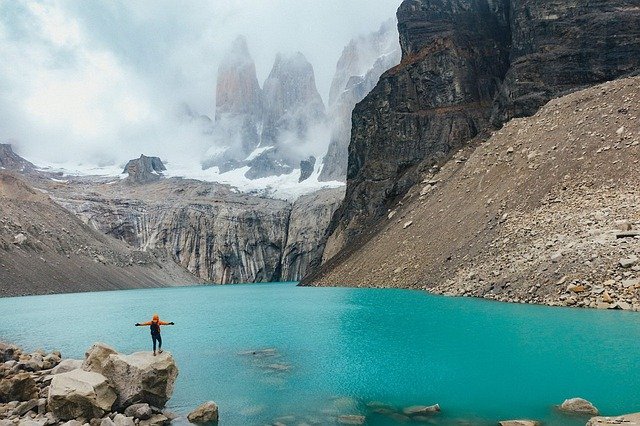
Overall Risks in Chile: MEDIUM
In essence, the security environment in Chile is relatively safe. That is to say, the greater majority of tourists that visited this country didn’t encounter any unwanted incidents. Notwithstanding, this doesn’t exclude the possibility of crime altogether – especially since scams and street crime are overly widespread.
The places in which these scenarios are likely to happen are Santiago, Calama, Antofagasta, Iquique, and Valparaiso.
On a different note, protests and demonstrations occur on a regular basis – especially in Santiago and other large cities. For example, there are some dates of national significance, such as the 11th of September, which celebrates the anniversary of a military coup, and others, which are often marked by demonstrations.
In order to disperse demonstrations, the police could attempt to use tear gas or water cannons.
Additionally, every now and then, small-scale bomb threats and attacks are likely to occur in Santiago. For the most part, these incidents are linked with domestic anarchist groups. In general, they target churches, banks, public buildings, ATMs, and public transport facilities. Nonetheless, most of these incidents take place at night.
Pickpocketing and Theft Risks in Chile: MEDIUM
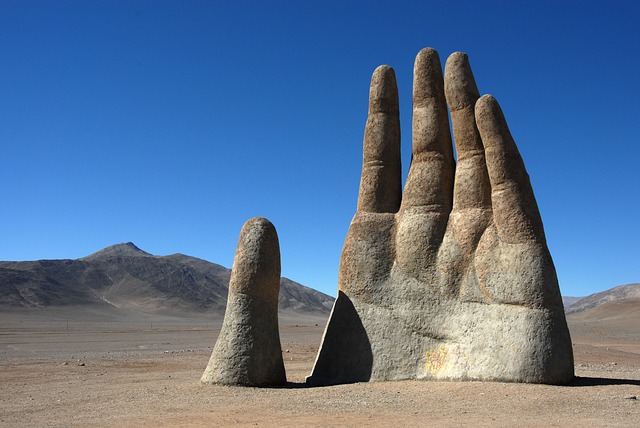
Pickpocketing is a serious concern when it comes to traveling to South American countries. This is because many locals are struggling with poverty. That is to say, according to official reports, poverty in Chile has been on the growth, over recent years. Thus, street crime is overly common.
The areas that are mostly targeted by thieves and pickpockets are, of course, major tourist sites, which are frequented by foreigners. At the same time, public transport facilities are often a target.
As a rule of thumb, overcrowded places, including restaurants and cafes are hot spots for pickpockets. The areas in which these incidents are prone to occur include the Las Condes, Vitacura, and Providencia areas of Santiago. Concurrently, you should be cautious around the Lake District, Cerro Santa Lucia, Cerro Manquehue, and Cerro San Cristobal.
- How to avoid pickpocketing and theft in Chile?
As a rule of thumb, you should take the necessary precautions before heading to town. That is to say, you should avoid drawing attention to yourself. Make sure you keep your valuables well concealed. At the same time, it’s important to be wary of your surroundings.
Since bag snatching is a common practice used by pickpockets, you should carry your bag in front of you, so that you can see it at all times. And while we mentioned that Santiago is perhaps a hub for pickpockets, this doesn’t mean you should leave your guard down when you’re visiting other cities in Chile. Muggings and pickpocketing can happen anywhere.
Also, even though daylight muggings aren’t that common, there had been some reports in the past. Hence, it is always best to travel in groups, especially in isolated areas and after nightfall.
Scam Risk in Chile: MEDIUM to HIGH
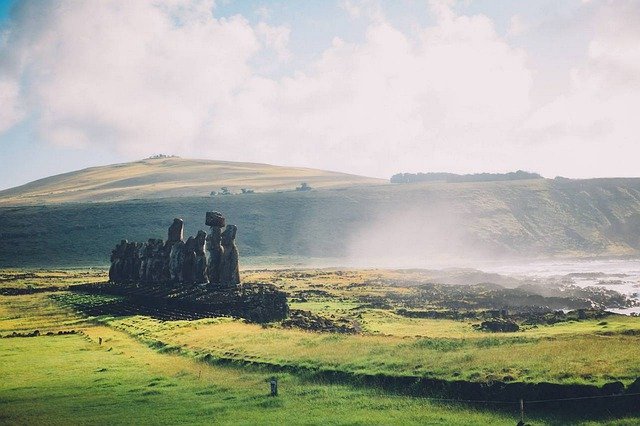
Every Chile safety guide should incorporate information regarding common scams. And, the truth is that most countries in South America feature a high scam risk – and Chile, unfortunately, doesn’t make an exception to this rule.
First and foremost, there is the taxi scam. Why is that? Since only 14 percent of the taxi drivers in Chile are officially certified by the Ministry of Transport, this allows plentiful room for dishonest taxi drivers. Therefore, most tourists are ripped off if they do take a taxi in Santiago.
This is why you should try taking official taxis only.
Most scams take place at the airport. Scammers target tourists by approaching them as soon as they get outside the airport.
Now, if you plan on crossing the Chile-Peru border, the bus or taxi driver might try to convince you that you are required to pay a visa or tourist card fee. This scam has worked in the case of unsuspecting, uninformed tourists – but it is utterly false. Bear in mind – you needn’t pay a fee to someone who isn’t a customs border official.
Another scam involves a local dropping something on your shirt or, even better, your cameras, such as mustard or anything of the kind. Afterward, another helpful individual offers to help clean that up. Conveniently, that person will carry an abundance of napkins with him/her. This is a common scam that is meant to distract foreigners. These scammers would grab anything: cameras, bags, purses, anything.
- How to avoid getting scammed in Chile?
If you have the option, you should order a taxi as opposed to hailing one on the street. At the same time, make sure that the driver turns the meter on, in order to avoid any surprises.
Plus, you should always have a small change at hand. There have been cases in which scammers told the foreigners that they used a 1,000 bill, when, in truth, they gave a 10,000 bill.
Also, avoid getting inside a taxi with other occupants. The only person that should be inside a cab, besides you, is the driver. If there is another person that offers to help you out with your bags at the hotel or take out money from the ATM, then, something’s wrong.
On a different note, make sure you never pay for the journey beforehand, as some drivers have used this scam, as well. You should only do that at the end of the journey.
In essence, you should be vigilant and aware of your surroundings. This is even more important if you’re traveling by yourself since you might be perceived as the ideal target for scammers. If you do notice something weird, keep calm and get the distance.
Kidnapping Risk in Chile: LOW
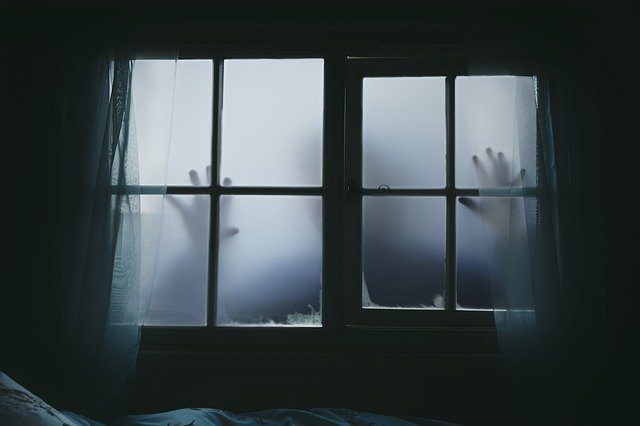
Even though criminal incidents are prone to occur in Chile, the good news is that express and traditional kidnappings are nearly non-existent. That is to say, the number of kidnapping incidents is low.
In spite of that, though, this doesn’t eliminate the possibility altogether. As a matter of fact, a tourist actually shared her unfortunate experience of being kidnapped in Chile, which indicates that it can happen, even if the statistics aren’t that terrifying. This merely points out that being cautious is the best approach, regardless of your traveling destination.
- How to avoid getting kidnapped in Chile?
As a rule of thumb, you should avoid walking alone at nighttime. At the same time, overcrowded, popular spots are usually the places in which kidnapping incidents take place. This is why you should avoid them.
On the other hand, though, remote areas aren’t better, from this viewpoint – quite the opposite. This means you should exercise additional caution in this respect, as well.
Under no circumstances should you explore remote areas that are utterly unknown to you, especially at nighttime. Plus, if that’s a possibility, you should travel with someone you can trust. Even if solo traveling accounts for a unique, memorable experience, there are some imminent challenges that come with the territory.
Terrorism Risk in Chile: LOW
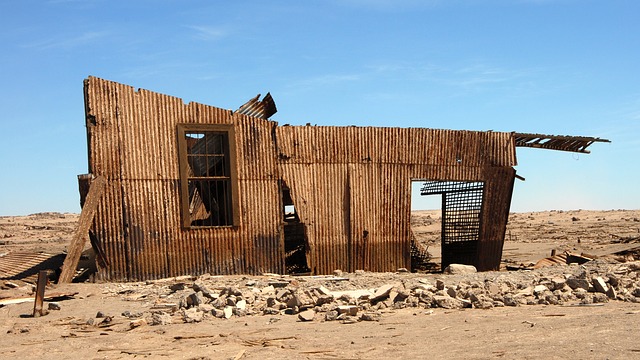
If you’re wondering: how safe is Chile for tourists when it comes to potential terrorist attacks, the good thing is that the risk in this respect is low. In spite of that, though, this doesn’t mean we can rule out terrorist attacks altogether. Even if they are unlikely to take place, they could be indiscriminate, and they might take place in popular areas frequented by tourists.
As we mentioned beforehand, it is common for anarchist groups to engage in potential acts of domestic terrorism. For the most part, these could take place in Santiago. These groups use small explosive devices and they target public transport facilities, ATMs, and other public spaces.
These incidents are usually planned in an attempt to make a political statement. That is to say, they aren’t meant to harm or cause injuries to a passerby. Nevertheless, in 2014, things were different, in the sense that some anarchists groups targeted the general public. As a result, after an organized incident, 14 people were injured.
- How to avoid terrorism in Chile?
So, make sure you stay away from these types of groups if you notice them in your proximity. Also, since most of these incidents are planned at night, you should refrain from exploring the cities after nightfall.
On top of that, it is recommended that you try to keep an eye on your surroundings at all times. As seen from above, such attacks usually happen in crowded places - public demonstrations, places of prayer, museums, schools, places of interest, shopping malls, markets, and so on. While in such a location, it is wise to keep an eye out for anything suspicious. If you see anything out of the ordinary, flee the area and alert the authorities.
If something does happen, it's very important to keep calm and to run away from the location under attack before and without being noticed. Alerting the authorities should be the first thing you do after!
Risks for Women Traveling Alone in Chile: MEDIUM
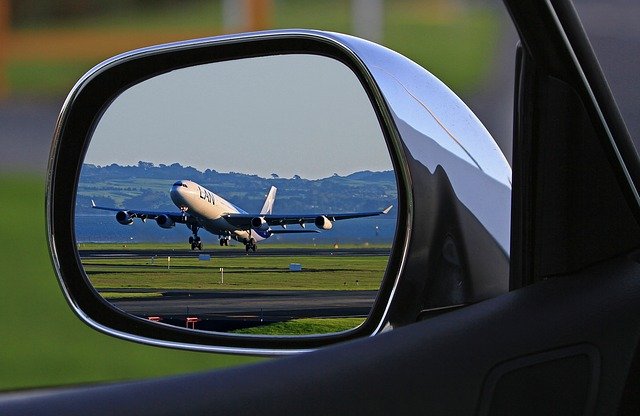
With the common precautions, solo women travelers could plan a trip to Chile. Of course, everyone has a different opinion on this topic. That is to say, you alone can answer the question: is Chile safe for solo women travelers, but, the thing is that numerous women have attempted to visit this beautiful country.
Chile is definitely a friendly country, and many foreigners are actually eager backpackers. Additionally, this doesn’t mean you should attempt to visit remote areas by yourself. What is more, solo men travelers should avoid doing that as well, since it is quite unsafe, regardless of the country you’re in.
Plus, as a solo woman traveler, you will inevitably draw attention towards yourself. This is because you might look entirely different than a typical Chilean woman. Therefore, some people might stare, others might make comments – it’s best to ignore these.
Concurrently, since Chile has a significant number of nightclubs and bars, you might be attracted to this unique nightlife experience. However, if you do plan on drinking, bear in mind that the reports of drink spiking had been on the increase. Santiago, notably Suecia and Bellavista are specifically notorious for this sort of activity.
That is to say, victims are offered drinks with drugs, which ought to make them unconscious. Of course, this would make one susceptible to assault, robbery, or even worse. This is why you should never accept drinks from someone you aren’t acquainted with, and keep an eye on your beverage if you’re in a club.
- How to avoid crime as a solo woman traveler in Chile?
That being said, while there are some risks that come with the territory, if you’re being cautious and aware, you should be safe throughout your trip.
As a woman, you must understand that you are very likely to be seen and treated in a different manner. For once, you may experience catcalling or intensive staring from Chilean men, mainly because you are a foreigner. At the same time, you are more susceptible to scams and pickpocketing than the average male tourist - it's something that you can't fight against.
However, you can prevent such things from happening by approaching a decent dress code and by securing your goods in a more secure manner. Therefore, you'll have to ditch your fancy purse, so to say, or any other flimsy bag and replace them with a strong and sturdy backpack or side bag that can deter attackers or pickpockets.
Lastly, don't answer to any type of harassment, and always make sure to order your own drinks and food while in town. If possible, also make sure that you can see your beverages/ dishes being prepared. It's better to take an extra step when it comes to safety and security than wake up drugged and without your wallet, phone, and so on.
Rape Risk in Chile: MEDIUM
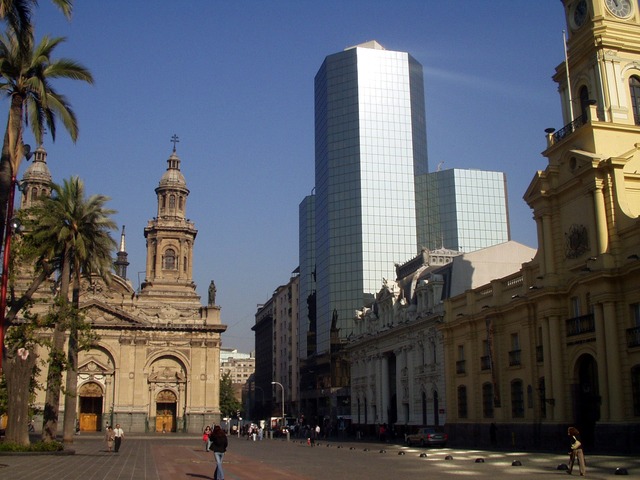
Even though the rape rate in Chile has decreased over the years, some incidents have been reported in the past. For example, a 28-year-old woman was raped by a group of Spanish men, who were dressed as fans of the University of Chile, after a football match.
On a different note, another severe case of rape was monitored, entailing a raped toddler. As a matter of fact, the doctors that examined her noted that they had never seen such severe signs of abuse in their year of experience.
During the last year, there were merely 22,540 complaints regarding sexual abuse – that would equal an average of three per hour. Supposedly, children and teenagers are the main victims.
Essentially, these are isolated cases, which aren’t likely to occur to foreigners. Of course, this doesn’t deny the fact that sexual abuse is a major concern in most Chilean families. That being said, women should be extra cautious if they plan on visiting Chile.
- How to avoid getting raped in Chile?
It’s highly recommendable to travel accompanied since women that are alone might draw more attention towards them. Concurrently, it is advisable to avoid showing too much skin.
Walking on lone, remote alleys, especially at night is contraindicated, as it could lead to unwanted scenarios. Plus, if you intend to go to pubs or clubs, make sure you don’t leave your drink unattended, as someone could slip something inside.
Generally speaking, though, as long as you’re cautious, and you steer clear of crowds or remote areas, nothing should happen to you.
Risks for People Traveling with Children in Chile: MEDIUM
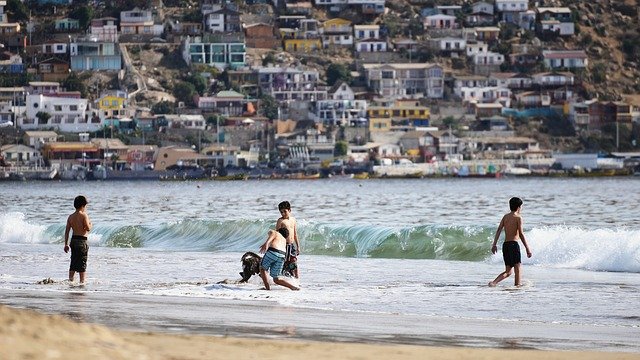
Even though traveling with children to Chile can be exhilarating, make sure you don’t overlook the challenges that come with the territory. After reading our Chile safety travel tips, you should have an idea of the dangers you’d be exposing your family to.
While the medical services in Santiago are state-of-the-art, this isn’t the case for the entire country. That is to say, the level of medical care provided in Chile can vary greatly, depending on the area.
Additionally, since the landscape is so diverse in Chile, so are the driving conditions. Hence, if you plan on exploring this country by car, you should prepare yourself for a wide range of driving conditions including sandy deserts and snowy mountains.
- How to avoid unwanted scenarios?
That being said, your family’s adaptability to the ever-changing environment of this country is a major factor that should help you make the right decision.
This basically means that you should always be prepared for anything that might happen to you or to your children. For example, while you may not be the victim of pickpockets or criminal groups, the little ones may experience the occasional tummy or headache, a case in which you must have the right pills with you. It is better to have a personal supply of medicine that you bring from your country of origin - depending on whether you visit only Santiago or not.
Overall, make sure that they are protected at all times and don't have the risk of getting ill or - probably even worse - lost within a crowd.
Natural Disaster Risks in Chile: MEDIUM to HIGH
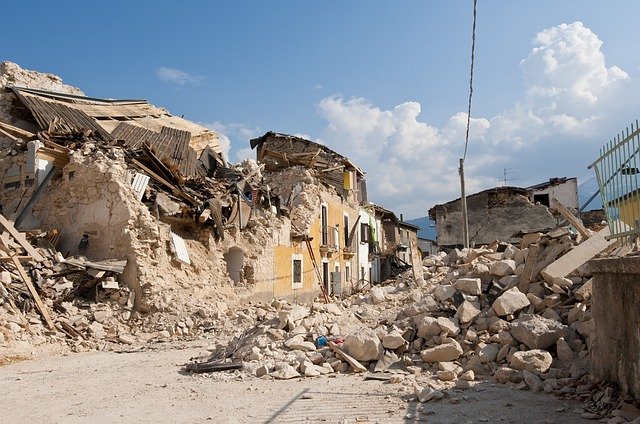
It’s worth noting that earthquakes are prone to take place in Chile at any time. That is because Chile is situated in a highly seismically active zone for volcanic eruptions and earthquakes alike. Hence, throughout the years, this country has gone through a lot of earthquakes, some more severe than others.
This is why you should be prepared for whatever may come if you’re visiting Chile. For the most part, building codes feature high earthquake standards. Hence, if they are taken into account, you should be on the safe side.
However, make sure you familiarize yourself with the recommended safety procedures you should follow in the case of a tsunami or earthquake. Plus, before you proceed to hike a volcanic mountain, get appropriate information regarding its volcanic activity.
Transportation Risks in Chile: MEDIUM
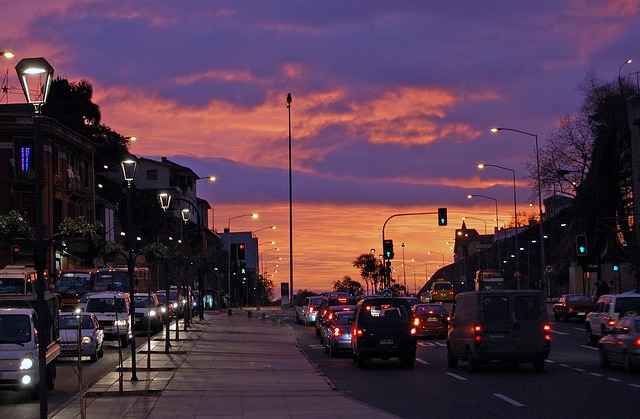
First of all, it is worth mentioning that you should cross the borders of Chile only via authorized points and should not drive/ walk around the border edges elsewhere. This is because the border areas are reportedly infested with minefields - especially near the borders with Bolivia, Peru, and Argentina.
While landmines usually affect local people and livestock, they may become deadly to the unwary traveler. Moreover, even though minefields are usually marketed clearly, some of them come with old and damaged fences, making the fields and markings harder to notice.
It is also recommended to simply stay away from border areas because there are some minefields that are located right up to the edge of certain highways - meaning that if you make a pit stop in a bad area, you might put yourself at risk.
When traveling, keep in mind that open fires outside any permitted camping areas are strictly forbidden. On top of that, if you go mountaineering or exploring, worry less about open fires - and avoid them - and instead remember to notify the local authorities of your intentions, as well as of your schedule. If you do not return within the time frame specified by you, a rescue team will start searching for your team and bring you home safely.
As for driving in Chile, remember that Easter Island comes with no car insurance. This means that, basically, if you get involved in an accident and your vehicle gets damaged, you'll have to pay for the repairs from your own wallet.
When it comes to the country's roads, most of them are reportedly surfaced - still, several sources suggest that you may still need an FWD vehicle if you plan to travel in the countryside.
In fact, you may want to choose a more powerful car if you want to drive here, as you'll probably encounter a wide range of driving conditions - ice, snow, and even hot sandy deserts. If traveling between June and September, keep in mind that the Chile-Argentina border crossing located high up in the Andes may be closed due to severe winter weather conditions.
Night-Clubs, Pubs, and Bar Risks in Chile: MEDIUM
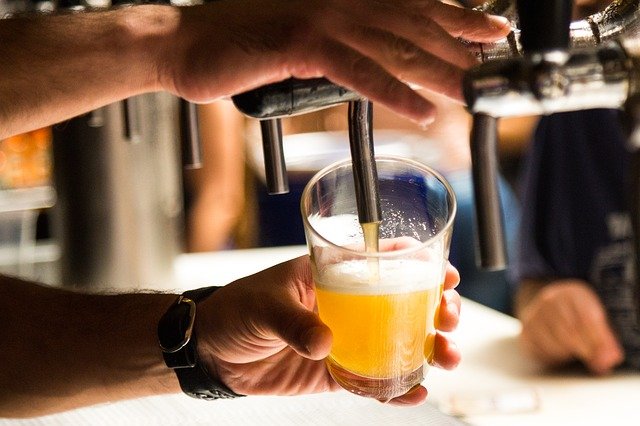
As mentioned above, Chile comes with a mix of two very dangerous things - namely, plenty of bars and nightclubs where tourists can party and an increasing number of spiked drinks reports. Obviously, these things are very dangerous for a tourist, especially for one that isn't cautious and/ or prepared for such incidents.
First of all, when it comes to nightclubs, pubs, and bars, we strongly advise you to pick the place suited for you and for your group. If you're alone or part of a small group, the best way to avoid any kind of trouble (either a small brawl or criminal incident) is to rely on the pub/ bar that is located in your accommodation.
On top of that, if you think you may not be able to handle a bunch of Chilean men threatening you, then you shouldn't consider any bars too far away from your hotel.
On the other hand, when it comes to drinking spiking, there's one simple thing that you can do to avoid it. Namely - simply avoid leaving your beverage unattended and make sure to order it yourself. Naturally, it is much better if you can see it being prepared.
Another very useful tip we have for you is to drink only things that you are accustomed to so that you know what taste they should have. This way, if there's something in your drink, you may be able to notice and get back home as soon as possible.
Lastly, limit your intake of local types of alcohol, as it may be stronger than in your country. Most of the time, criminals don't even bother spiking your drink and rely on the strength of their local spirits to take you down and then rob you. In short, drink and act responsibly and choose your nightclubs and bars carefully!
Health Risks in Chile
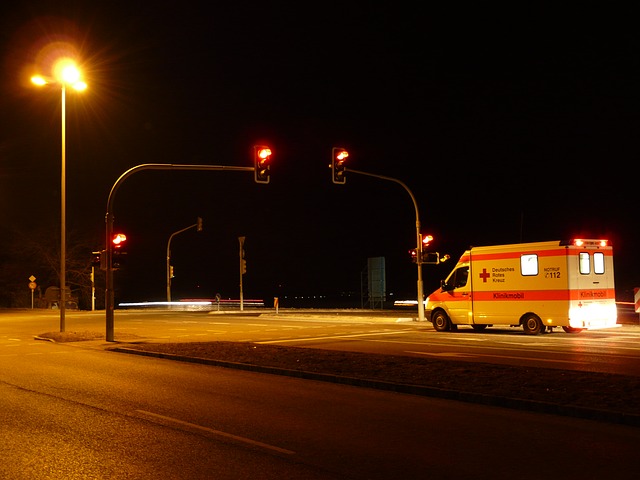
As it has been mentioned above, the city of Santiago and a couple of other major cities come with good, comprehensive health care facilities that may be able to help you even in serious situations, so to say. On the other hand, if you require intensive/ extensive treatment, then you may have to rely on a private clinic or hospital - and these can be quite expensive.
In order to be fully protected in terms of health and treatment, we strongly recommend you travel with proper travel health insurance as well as enough funds to cover the immediate costs of any surgery, treatment, or intervention that you may need.
When it comes to traveling to a foreign country overall, you should consult with your doctor as well as with the National Travel Health Network and Center at least 8 weeks before your trip. Doctors will be able to tell you exactly what vaccines you have to take, as well as what safety measures you should personally take to avoid things that may affect you.
If you want to bring the medicine with you, make sure you can do so with your particular type of medicine. You may also check whether you can find certain medicine within Chile or not - to make sure that you bring with you what you need and that you won't have a hard time buying certain medicine within this country.
As for health risks, keep in mind that there have been some cases of Dengue fever confirmed on Easter Island. To avoid contracting such a disease, do your best to avoid mosquito bites. If you visit the country - especially the city of Santiago - during winter, you should prepare some pollution masks.
The months from June to September come with alarming air pollution statistics - reportedly, the situation is so bad that you may suffer from respiratory problems and eye irritation if exposed to Santiago's polluted air.
If you visit Easter Island, remember that there's only one hospital that offers treatment here and its facilities are rather limited. If you cannot be treated here, you have to be evacuated by air ambulance - make sure you have enough funds of you to cover an evacuation, in case you need it.
List of Vaccines You Need in Chile

There is a range of vaccines that are recommendable for foreigners traveling to Chile, as noted by CDC. In this way, you can exclude the incidence of dealing with any medical condition that is widespread in South America.
- Typhoid
- Hepatitis A
- Hepatitis B
- Influenza
- Rabies
Most Dangerous Areas in Chile
- Popular areas in Valparaiso and Santiago
- Borders with Argentina, Peru, and Bolivia
- The districts of Macul, la Pintana, Renca, San Joaquin, Nunoa, Estacion Central, and Huechuraba of Santiago should be avoided during times of protests, demonstrations, and distress.
- Araucania Region - Temuco especially - comes with civil unrest and occasional attacks on property.
Concluding Remarks: Is Chile Safe to Visit?
On a final note: how safe is Chile for tourists? Should you visit this country of contrasts? Overall, Chile is a generally safe country, in comparison with other countries in Latin America, which have higher crime rates.
Of course, street crimes and political demonstrations occur in Chile as well – in the major cities, for the most part.
Additionally, in the metropolitan Santiago area, vehicle thefts and robberies are more widespread, in comparison with rural areas, for instance. Even so, if you do factor in our Chile safety travel tips you will significantly reduce the likelihood of being a victim.



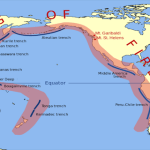
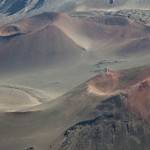
David
Great article, thanks for the tips! Indeed, Chile is one of the most interesting countries in South America, with its diverse, pristine landscape second to none! However, the country is also afflicted by tourist targeted scams and crime.
Do be wary of the bird poo/mustard scam, poor student scam, border crossing scam, drink spiking, pickpocketing, robberies, muggings, pirate taxis, airport fake taxis, taxis with two occupants, carjackings, snatch thefts, flat tire scam and many more!